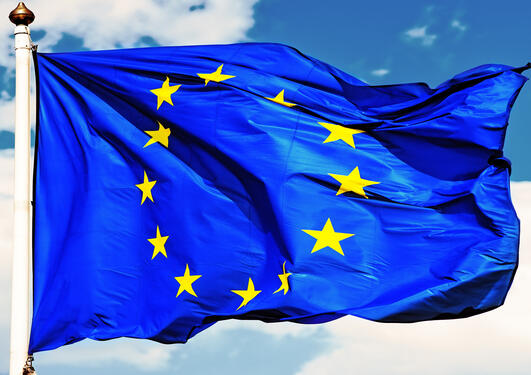Register for the 'EU taxonomy' seminar here!
You can now register to receive the webinar link for the EU taxonomy seminar! You can also submit questions you would like to see answered in the webinar!

Hovedinnhold
You can now register to receive the webinar link for the EU taxonomy seminar!
The seminar is split into two parts. Details about each part can be found below.
In this half-day seminar, the different speakers will discuss how their field may be affected by the EU Taxonomy for sustainable activities. The seminar is split into two parts.
Monday May 10th 14:15-15:45 - Part 1:
Berte-Elen Konow (UiB) - Sustainable finance and the EU taxonomy at a glance.
A short presentation of the background and scope of the Taxonomy Regulation, the main principles of how to decide whether an economic activity is regarded as environmentally sustainable and the link between the Taxonomy Regulation and the screening criteria.
Daniel Næsse (PwC) – A closer look at the taxonomy with regards to criterias of use, and its impact
The presentation will address how the technical criteria are formulated by way of examples relevant to the energy industry. Furthermore, the presentation will address the mechanisms that give the taxonomy an important impact to companies far beyond the ones thatactually have a reporting requirement, including new clarifications from the Commission in April 2021.
Grete Rusten, Department of Geography, University of Bergen - Will EU`s Taxonomy Regulation make the industry greener?
This presentation will critically discuss some potential impact (or lack of so) in triggering the industry in a greener direction. The factors that briefly will be discussed are for the first the way rebound effects outside and geographically far away from the company in question is not considered and means that things are not improving at all. Second, is the issue about replacement effects that leads to an increase in use of resources. Thirdly do this presentation address the way the taxonomy does not grasp variations of performance between different individual players within the same sector. Finally, this concerns the question about whether the taxonomy should act as an instrument to support the winners or alternatively compensate for market failure.
Wednesday May 19th 08:30-10:00 - Part 2:
Herlaug Fyhn (DNB) - The impact of the EU taxonomy on the banking sector
If EU is to reach its targets under the Paris agreement it will require huge investments. The transition to a net-zero emissions society cannot be funded by the public sector alone. Therefore, EU is introducing a set of regulations that will incentivize and steer private capital into the technologies and infrastructure that will decarbonize the European economies.
One central element in Europe’s Green Deal is the EU taxonomy which provides a common language that will help investors make informed decisions about what is green and sustainable. Although the taxonomy is new, sustainable finance is not a new topic. Over recent years, we see that investors are putting increasingly more pressure on the companies they finance. There are numerous investor initiatives with the target of reaching net-zero emissions in 2050, and to get there they are already reallocating capital today. The sustainability profile of companies is increasingly impacting their access to, and cost of, capital. How the market of sustainable investments is developing, and the taxonomy’s impact on the financial sector, will be addressed further in the session at UiB on May 19th.
Benedicte Stålelsen Nilsen (BKK) – Taxonomy and the value of hydropower in Europe
When the first draft of the taxonomy (March 2020) defined hydro power as not being sustainable, but rather, considered a transitional technology, Norway was taken aback. However, hydro power was in the final classification defined as sustainable. That is good news for the clean batteries that Norwegian hydro power is. However, the process of the taxonomy is an illustration of how hydro power is seen as less valuable, compared to technologies such as wind and sun.
Ignacio Herrera Anchustegui (UiB) - Implications of the EU Taxonomy for the electrification of the Norwegian Continental Shelf.
The Norwegian Continental Shelf is 6 times larger than Norway’s land territory. In this space lies a great deal of the riches of the country: oil and gas deposits. Efforts have been made since 1996 by Equinor and other oil and gas companies to electricity the different activities in the Norwegian Continental Shelf. This is done to reduce the associated carbon emissions to industrial activity. Different projects are on its way to continue this electrification as well as to promote the capture and storage of carbon. The EU taxonomy will have an effect on the electrification of activities and the deployment of projects. What will be that effect is still unknown. Is a wind farm connected to an oil and gas rig considered a ‘green investment’ or is it brown? What about support to only gas but not oil projects? What about electrification from land? Is this a matter of interpretation, convenience, politics or the rule of law? These are some of the questions we will discuss in this presentation.
